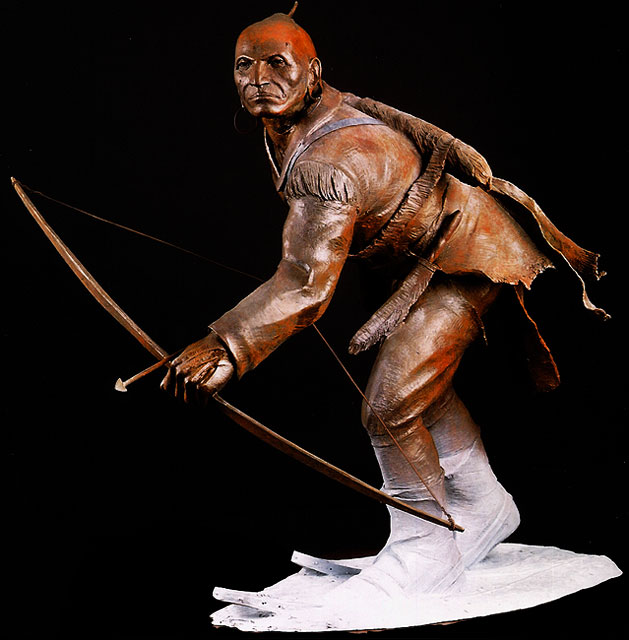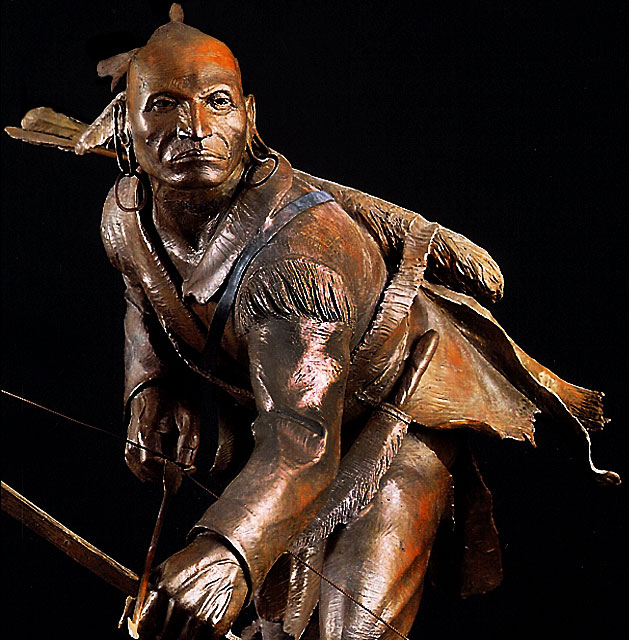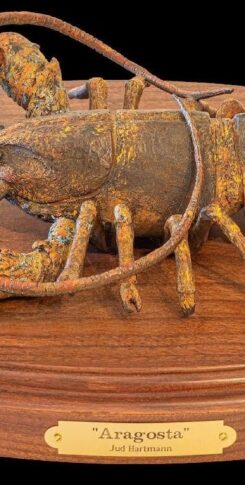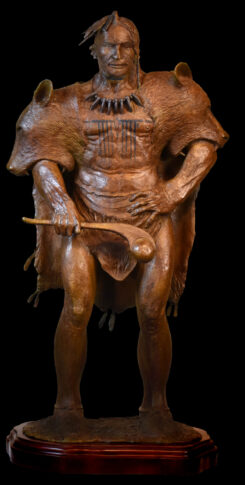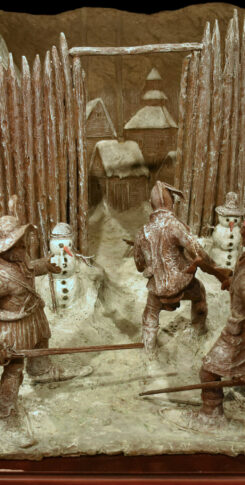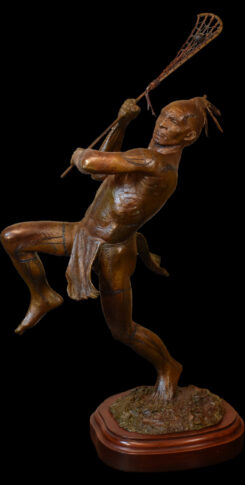Bronze edition: 15 | Height: 40″
Penobscot Chief and Shaman
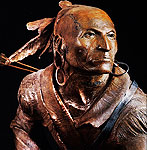
“Their food is whatever they can get from the chase and from fishing for they do not till the soil at all. In the month of February until the middle of March is the great hunt for beavers, otters, moose and bears and for the caribou. In the middle of March fish begin to spawn and come up from the sea into certain streams … from the month of May to the middle of September, they are free from all anxiety about their food; for the cod are upon the coast, and all kinds of fish and shell fish … In the middle of September, they withdraw from the sea … to the little rivers where the eels spawn … in October and November comes the second hunt.”
Fr. Pierre Biard (1611)
Certain men renowned as warriors and hungers of endowed with a gift for oratory qualified as leaders in Wabanaki communities and were called sagamores. Greater sagamores were known to possess as well special spirit power which enabled them to accomplish extraordinary feats. The greatest Shamans were likely to be the most important chiefs.
Madockawando is remembered as “a great chief of the Penobscots”. His village was at Pentegoet (modern day Castine, Maine) and his daughter, Pidianiski, baptized Molly Mathilde, married Baron de St. Castin (1652-1707).
Among the nomadic Wabanacki – the tribes of the Maritimes, Maine and the rest of northern New England – Shamanism was commonly attributed to the greater chiefs to whom supernatural power would give authority in the absense of a strong social organization.
Madockawando as chief and Shaman was a soothsayer, clairvoyant, necromancer, exorcist and was in a position to act as a middleman between his people and the powers that meddle with life. He is a “wonder-worker”, whose magic was derived from the spiritual and animal world. Indeed, the very ending of his name means mysterious, magical, powerful, miraculous, enabling things to be done supernaturally. He could lead them to game; he could drive out the devils of disease and circumvent the magic of enemies. Ordinary men could fight, but only the man with magic could content with the unseen powers and work out destiny.
Among his descendants was Lt. Governor John Neptune (1767-1865) who inherited the Shamanistic power of Madockawando. As with his forbear, he was regarded as a peculiarly gifted “Medeoulinwak” (magician) “who could make his voice heard 100 miles away, who could walk in hard ground sinking up to his knees at every step, who could find green corn in winter and tobacco in the forest where there was none and who had fought and overcome that slimy, devouring monster, the dreadful Wiwiliamecq.*”
From “Old John Neptune and
Other Maine Indian Shamans,”
by Fannie Hardy Eckstrom (1938)
*apparently the Giant Squid.

